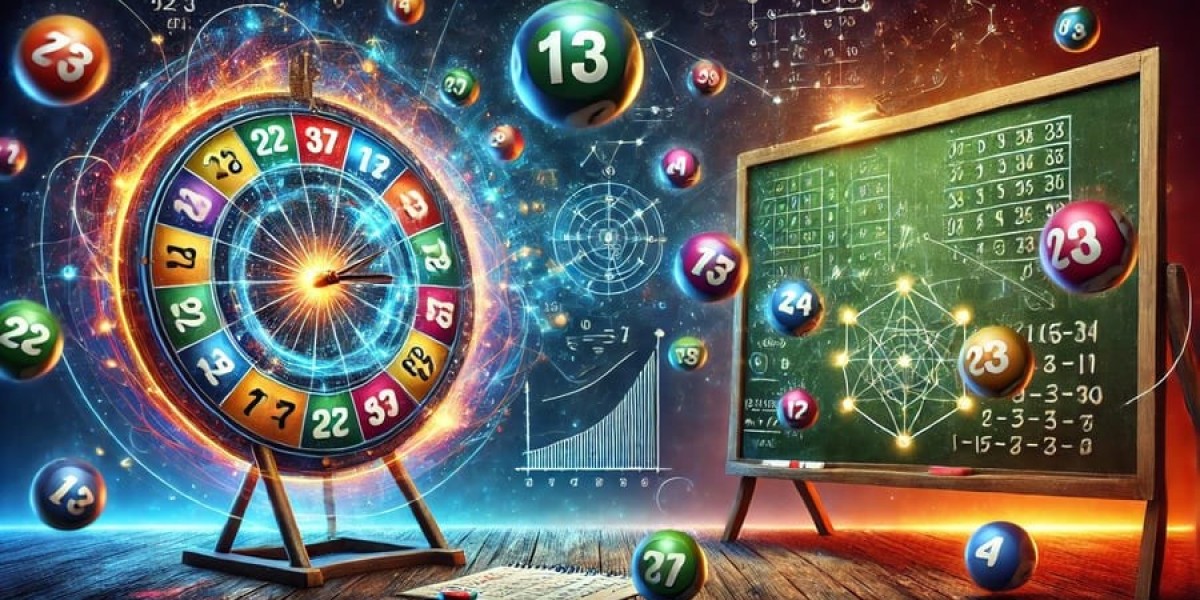Incorporating statistical evaluation can vastly alter your method to choosing lotto numbers.
Incorporating statistical evaluation can vastly alter your method to choosing
lotto numbers.
Tracking frequency charts over time can reveal tendencies and assist gamers determine potential 'fortunate' numbers. Some lotteries publish historic knowledge, and gamers can analyze this info to determine which numbers have seen success in previous draws.
The operation of
Lotto Auto Number prediction software typically involves knowledge compilation, algorithm software, and outcome generation. Typically, the software program will require customers to input certain parameters similar to the particular lottery game, the variety of draws to investigate, and any private quantity preferences. After processing historical information using statistical fashions, the software generates predictions primarily based on its analyses.
In reality, each draw of a lottery is unbiased. The chance does not change based on earlier outcomes, meaning that no number is inherently luckier than another. Furthermore, whereas some players would possibly believe that they will predict outcomes based on statistical evaluation, such a strategy usually ignores the randomness principle that defines lottery video games.
Many gamers have shared their real-life success tales about winning the lottery. For instance, a man from New York performed the same numbers for over three a long time and celebrated a $1 million win. His approach was a mix of personal significance and calculated danger, illustrating that persistence can indeed pay off. Another instance is a bunch of coworkers who pooled their money to buy tickets and ultimately received $240 million. Their story promotes collaboration and reinforces the potential of playing collectively.
Several inspiring stories spotlight the success of people who have utilized random lotto number turbines. For instance, a middle-aged man from New Jersey shared his experience of winning the lottery using a random quantity generator after years of enjoying persistently. He credited the generator for giving him a very random combination, which turned out to be the successful ticket. This story resonates with many who believe that randomization brings luck.
The rise of know-how and information analytics tools has profoundly modified the panorama of Lotto patterns evaluation. Numerous online platforms now supply analytical tools and software designed particularly for lottery lovers. These tools allow players to enter historical draw information and generate visible representations of developments, thereby facilitating easy access to crucial information.
Another layer to superior
Lotto Number Recommendation analysis is understanding the psychology of lottery gamers. Many players have their personal techniques, usually rooted in superstition or sentimental value—numbers related to birthdays or anniversaries, for instance. These decisions, while emotionally vital, may not always align with statistical benefit. Advanced lotto analysis encompasses the examine of behavioral patterns amongst lottery players, researching why some numbers become well-liked choices and how public tendencies can influence particular person betting habits. A clear understanding of what drives these patterns can present further insight into making more rational decisions in playing the lottery.
Statistics present that lottery players regularly select numbers primarily based on private significance, corresponding to birthdays and anniversaries. This practice can limit their number selection to a maximum of 31, thereby ignoring larger number areas available in plenty of lottery codecs. For instance, the Powerball lottery entails deciding on numbers up to sixty nine. Here, a random
lotto number generator may help players spread their selections over the entire range of possibilities, probably growing their chances of winning.
Randomness is a cornerstone in the mechanics of lotteries. Random quantity turbines (RNGs) harness mathematical algorithms to produce sequences of numbers that lack any deterministic sample. By using these methods, the outcome is left to chance, echoing the elemental precept of lotteries: that no one can predict or control the outcome. A notable example is the Mersenne Twister algorithm, which is broadly utilized in various functions for producing high-quality random numbers. The use of such advanced algorithms ensures the integrity of the random quantity era course of.
As society continues to evolve, so too does our understanding of luck and the rituals we affiliate with it. With the rising digitization of lottery techniques and the rise of online gaming, the physicality of lucky charms could shift. However, the psychological need for perception in luck remains a relentless. Future generations could adopt new symbols and rituals, however the core desire to reinforce one's probabilities will likely endure. Consequently, Lotto lucky charms will continue to hold a place in the hearts of many, serving as tangible reminders of hope amidst life’s uncertainties.
